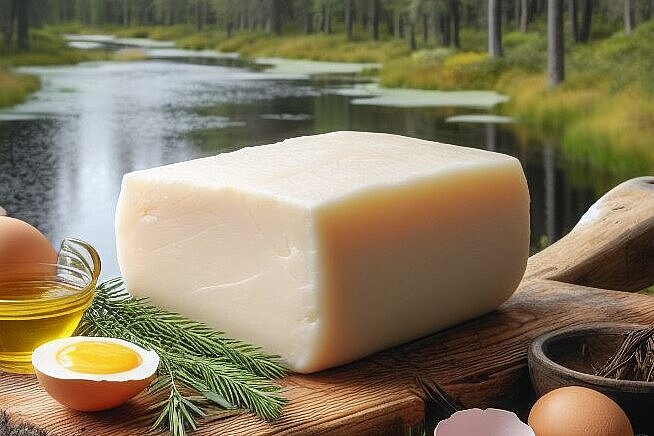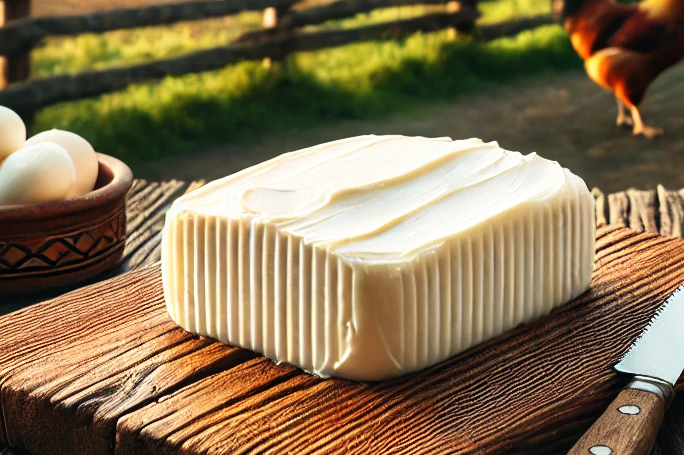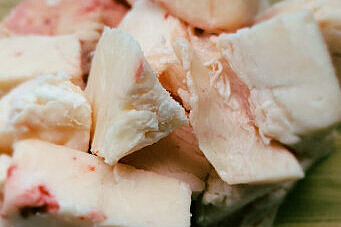Goose fat

Goose fat may sound unusual at first, but it has some interesting aspects to consider. In this article, you'll find out everything you need to know about goose fat, its advantages and disadvantages, and what it means for your four-legged friend.
What is goose fat?
Goose fat is, simply put, the fat that is extracted from geese. It is known for its high unsaturated fatty acid content, which sets it apart from other animal fats. In human cooking, it is often prized for its ability to impart a rich, savory flavor to dishes. But what about the use of goose fat in dog nutrition?
Benefits of goose fat for dogs
Rich in energy
Goose fat is a high calorie food additive. This can be particularly beneficial for active, athletic dogs or those that need extra energy.
Healthy skin and a shiny coat
The omega-3 and omega-6 fatty acids contained in goose fat can help to improve skin health and give your dog's coat a beautiful shine.
Natural flavor carrier
Goose fat can also act as a natural flavor carrier. It can help make food more palatable for picky eaters.
Disadvantages of goose fat for dogs
High in saturated fatty acids
Although goose fat contains unsaturated fatty acids, it is also high in saturated fatty acids. Overfeeding can lead to weight gain and associated health problems.
Risk of obesity
If consumed in excess, goose fat can contribute to obesity, which in turn increases the risk of diabetes, heart disease and other health problems.
Not suitable for all dogs
Dogs with certain health conditions, such as pancreatitis, should avoid goose fat as it can aggravate their conditions.
How much goose fat is safe?
The amount of goose fat that is safe for your dog depends on several factors, such as size, age, activity level and general health.
Goose fat can be an enrichment to your dog's diet when consumed in moderation. It provides energy and can contribute to healthy skin and coat. However, care should be taken to avoid overfeeding and the associated health risks.
Properties 10
Are you looking for other ingredients with a specific property?
Just click on them to find more.
If you notice any signs of hypersensitivity or poisoning in your dog, you should see your vet immediately. We are not a substitute for a vet, but we try to be as accurate as possible. Every dog reacts differently and we recommend you get a second opinion or consult your vet if in doubt.
Stay healthy and take good care of your four-legged friend!😊
Similar to Goose fat
Duck fat has several benefits for dogs that can make it a good addition to their diet. For one, duck fat can promote skin and coat health as it supports the formation of skin cells and hair. In...
Lard is not generally toxic to dogs, but it can cause serious health problems if it is fed in too large quantities or too frequently. The main risks are: Gastrointestinal discomfort: Lard is very...
Beef fat is the fatty tissue from cattle that is produced during slaughter. It contains mainly saturated fatty acids, which have a high energy density and can quickly give the dog strength and...
Benefits of lamb fat for dogs Lamb fat can be beneficial for dogs in certain situations. For example: If the dog is very active and consumes a lot of energy, lamb fat can help to meet calorie...



